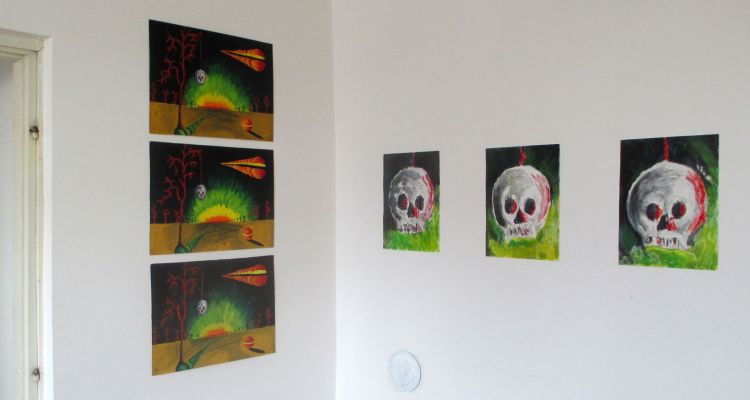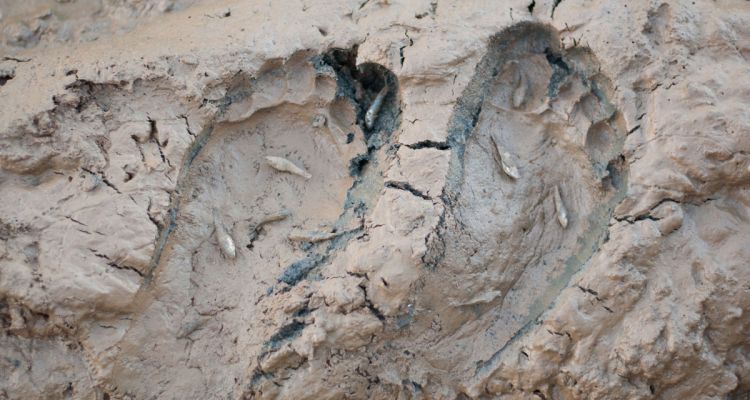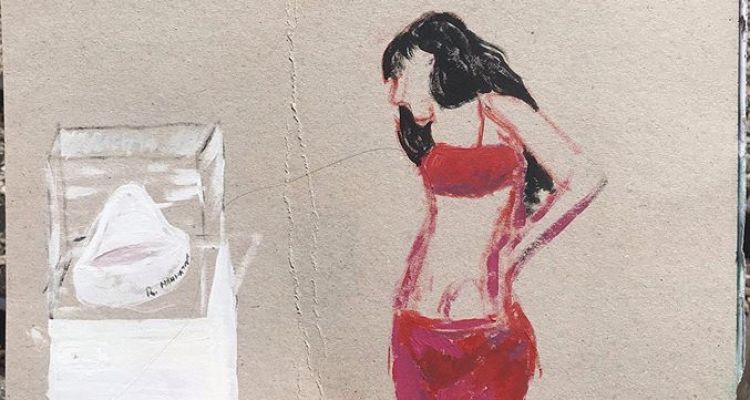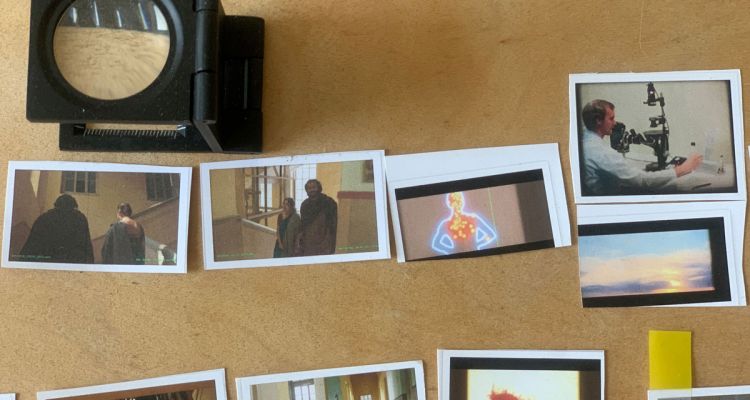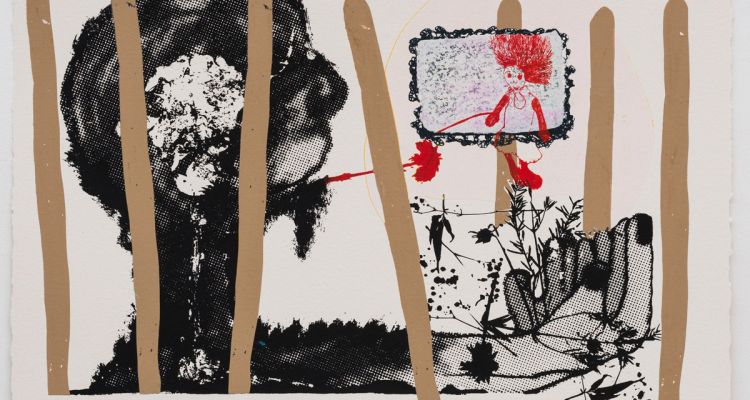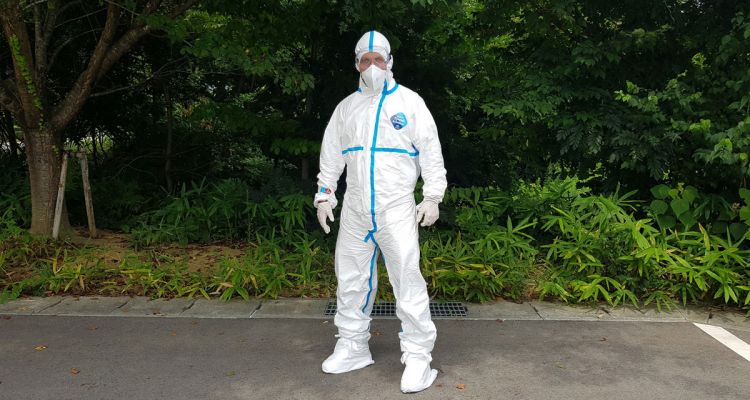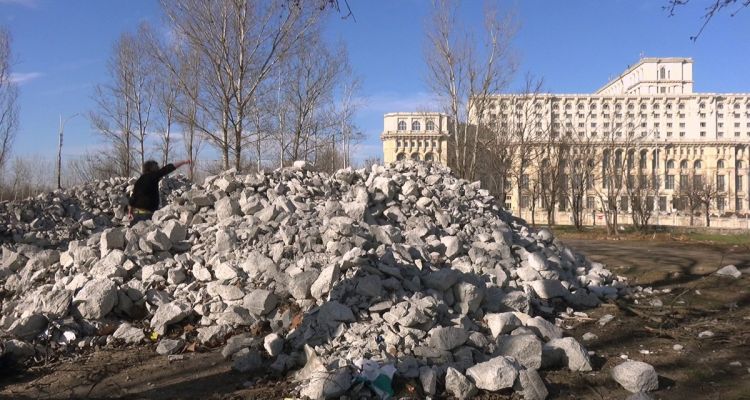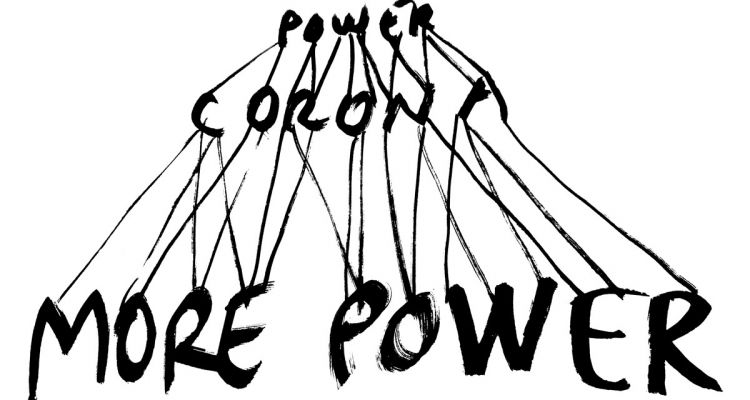Eduard Constantin, Self-portrait: Hiking in the City, digital photographs, 2020
Viral Self-Portraits
Online exhibition
15 May – 31 December 2020
Concept
Zdenka Badovinac
Curators selectors
Afiaty Riksa, Zdenka Badovinac, Ekaterina Degot, Tandazani Dhlakama, Galit Eilat, Charles Esche, iLiana Fokianaki, Boris Groys, Hou Hanru, Vít Havránek, Koyo Kouoh, Pablo Lafuente, Tammy Langtry, Maria Lind, Nataša Petrešin-Bachelez, Bojana Piškur, Tjaša Pogačar, Igor Španjol, Mabel Tapia, Christine Tohme, Abhijan Toto, Jelena Vesić, Raluca Voinea, WHW
Artists
Julian Togar Abraham, Mounira Al Solh, Maria Thereza Alves, Nika Autor, Gaain Baahc, Babi Badalov, Djordje Balmazović, Denilson Baniwa, Jože Barši, Marko Batista, Richard Bell, Mona Benyamin, Olivia Botha, Sergey Bratkov, Tony Chakar, Olga Chernysheva, Virginia Chihota, nora chipaumire and Ari Marcopoulos, Claudiu Cobilanschi, Eduard Constantin, Anna Daucikova, Državljanska akcija [Civic Action], Jimmie Durham, Germano Dushá, Goran Đorđević, Lenka Đorojević, Ali Eyal, Vadim Fiškin, Jule Flierl, Andreas Maria Fohr, Jošt Franko, Quinsy Gario, Noa Giniger, Igor Grubić, Jusuf Hadžifejzović, Nika Ham, Michal Heiman, Thomas Hirschhorn, Maja Hodošček, Ištvan Išt Huzjan, Siniša Ilić, IRWIN, Iman Issa, Sanja Iveković, Janez Janša & Janez Janša & Janez Janša, Admire Kamudzengere, Mahmoud Khaled, Jure Kastelic, Olivia Hyunsin Kim/ddanddarakim, Kladnik&Neon, Staš Kleindienst, Meiro Koizumi, Jiří Kovanda, Nina Koželj, Andreja Kulunčić, Matts Leiderstam, Cristiano Lenhardt, Anna López Luna, Mikhail Maksimov, Tuan Mami, Agrippina R. Manhattan, Dalibor Martinis, Olivia Mihaltianu, Albina Mochryakova, Naeem Mohaiemen, Tanja Muravskaja, Ekaterina Muromtseva, Sarah Naqvi, Toos Nijssen, Octora, Ahmet Öğüt, Dimitry Orlač, Ernesto Oroza, Pavel Otdelnov, Prabhakar Pachpute, Iza Pavlina, Vesna Pavlović & Vladimir Jerić Vlidi, Yan Pei-Ming, Juan Pérez Agirregoikoa, Dan Perjovschi, Borut Peterlin, Raluca Popa, Tabita Rezaire, Sallisa Rosa, María Ruido, Jeffrey Shaw, Simona & Ramona (aka Claude & Dersch), Buhlebezwe Siwani, Maja Smrekar, Société Réaliste, Jonas Staal, Ayesha Sultana, Andrej Škufca, Igor Štromajer, Milica Tomić, Isola Tong, Isaac Chong Wai, Otty Widasari, Lin Yilin, Madalina Zaharia, Dion Zeqiri, Arseny Zhilyaev
Online Exhibition Editor
Ida Hiršenfelder
Viral Self-Portraits
We started thinking about the Viral Self-Portraits online exhibition at the height of the Covid-19 pandemic, when we were still self-isolating at home. We first contacted 23 curators across the globe to invite five artists each to do self-portraits, according to the invitation below. 100 international artists responded.
Rather than literal images of artists’ faces, what we had in mind with self-portraits was all the forces currently (co)shaping our subjectivities. Forces of a reality that is today full of unknowns due to the pandemic: without a way to prognosticate the kind of future that lies ahead we tend to imagine it on a range between two extremes: the possibility of outrageously authoritarian regimes and the prospect of a society of more equitable division of wealth. This is our first time of truly facing the transience of all existence, ourselves included, of facing our own death, which we had been pushing to the back of our minds for so long. Our increasingly fast-paced life has now come to a halt, at least for a while, hopefully long enough to allow for collective reflection.
INVITATION TO ARTISTS
We’re home again, now truly isolated for the first time. We’re seeing our kitchens, living rooms, bedrooms, bathrooms with new eyes, and we’re fully aware of the smell of our apartments and houses for the first time, of their comforts and beauty or else the peeling plaster and drafty windows. Some dream interpreters say that when we dream about our homes we’re really dreaming about ourselves, as though our homes were as unique as we are. You are what your home is. But it’s not that simple.
Every time of exception, such as this corona time, is an opportunity to take another, different look at the chairs and tables and the not-so-innocent appliances and devices. And at ourselves too.
Žižek once wrote that viruses are like Xerox machines, using us to photocopy themselves. Now we’re staying at home, in isolation, to protect ourselves from these photocopiers invisible to the naked eye. Is there an original virus, or are all viruses merely copies, or merely photocopiers, carriers? We also think about ourselves that way. It’s interesting what a handy metaphor the virus has become, a metaphor that has infected the virus with our notions.
Feeling safe from “viruses” at home is, of course, an illusion; it’s equally illusory to think that we ourselves cannot infect anyone, either their body or their spirit. Our home has become this photocopier of other bodies, spirits, and places. We’d be hard put to find a home not equipped with some modern machine for reproduction, such as a smartphone, a computer, or a TV set. The epidemic has become a metaphor for our life in general, for our subjectivity, which is both a carrier of infection and its object.
We’re living in an epidemic of information, true and false, and increasingly under the pressure of the politics of emergency measures without a predictable outcome. We’ve also caught the bug of fear, fear of what we’ll live on in the future, fear of whether we’ll ever dare touch anyone again, fear of everyone and everything being potentially our enemy. But as panic grows, so do our concern and care for others. We have become creative and we’ve recovered our sense of humor. Working from home, we’ve adapted our tasks and contents to the technology, becoming more and more inventive as we find ourselves virtually reduced to online communication. The coronavirus epidemic is bound to take a lot, but it will also yield a lot, in the sense that we’re bound to produce a great deal of new content – the question, however, remains who will make a profit from this content. Maurizio Lazzarato talks about the production of subjectivity as the standardization of the social, affective, and communal aspects of contemporary humans. Our ways of socializing, feeling, communicating are the raw materials of the contemporary production methods. The more special and creative we are in our actions and emotions, the more value we produce, and the more someone else profits from that. Thus also our particularity is increasingly given back to us as someone else’s particularity.
Everything we’ll produce at home during this corona time will soon “add extra value to” tourism, fashion, the manipulation of machines and vehicles, subsequently transforming us as well. In the end, every crisis generates profit for someone. The future is either corona capitalism as the next stage of cognitive capitalism or else a corona rebellion against this standardization – and this is where art can play a major role.
Coordination: Bojana Piškur, Tjaša Pogačar, Anja Radović, Igor Španjol Communication: Mateja Dimnik, Adela Železnik
Technical team: Slavko Glamočanin, Ana Korenini, Borut Kovačec
